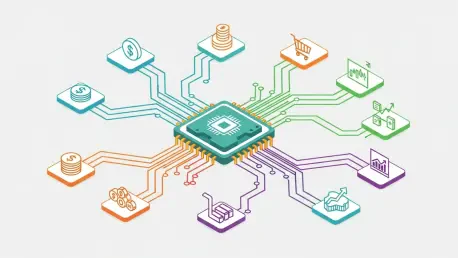
The digital dollar, once envisioned as a universal and interchangeable asset, is undergoing a dramatic Balkanization as individual applications begin to mint their own bespoke currencies, fundamentally altering the financial landscape of the web. This roundup examines the strategic motivations and

The next major transaction in your household may not be authorized by a person, but by an algorithm designed to anticipate your needs before you even recognize them yourself. This transition from active consumer choice to automated purchasing, known as agentic commerce, represents a fundamental

The convergence of high-profile media ventures and the cryptocurrency market has once again demonstrated its power to move asset prices, with Bitcoin's value climbing significantly following a major announcement. Bitcoin is currently trading near $91,265.01, marking a notable 2.86% increase, a

A strategic investment by Tether, the powerhouse behind the world's most widely used stablecoin, into the cross-border payment startup SQRIL signals a significant acceleration in the convergence of digital currencies and everyday commerce. This move, while undisclosed in its financial specifics, is

Permanently erasing a significant portion of a team's own vested assets from existence is a bold move in any market, let alone the volatile world of decentralized finance. When the crypto trading platform Banana Gun incinerated nearly 50,000 of its team’s tokens, valued at approximately $350,000,

After a protracted and punishing crypto winter that saw over a trillion dollars erased from the market, the digital asset landscape is witnessing the first significant signs of a thaw as large-scale investors begin to strategically redeploy capital into decentralized finance (DeFi). This emergent